#rustavi
Explore tagged Tumblr posts
Text
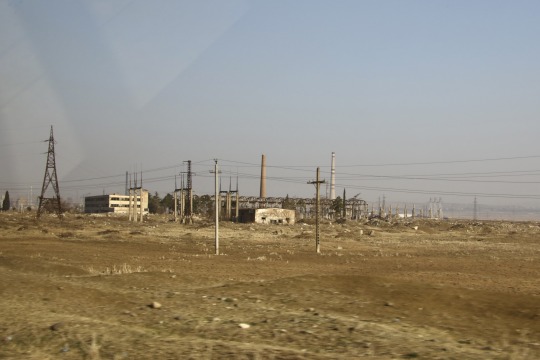






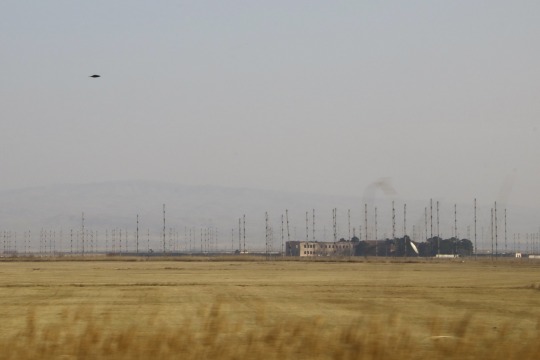
The outskirts of Rustavi, seen from the road
Taken March 2025
#abandoned places#farms#abandoned buildings#rustavi#georgia#statues#goats#telephone wires#my photos#my places#sptrv
84 notes
·
View notes
Text

March 2024
Rustavi, Georgia
100 notes
·
View notes
Text
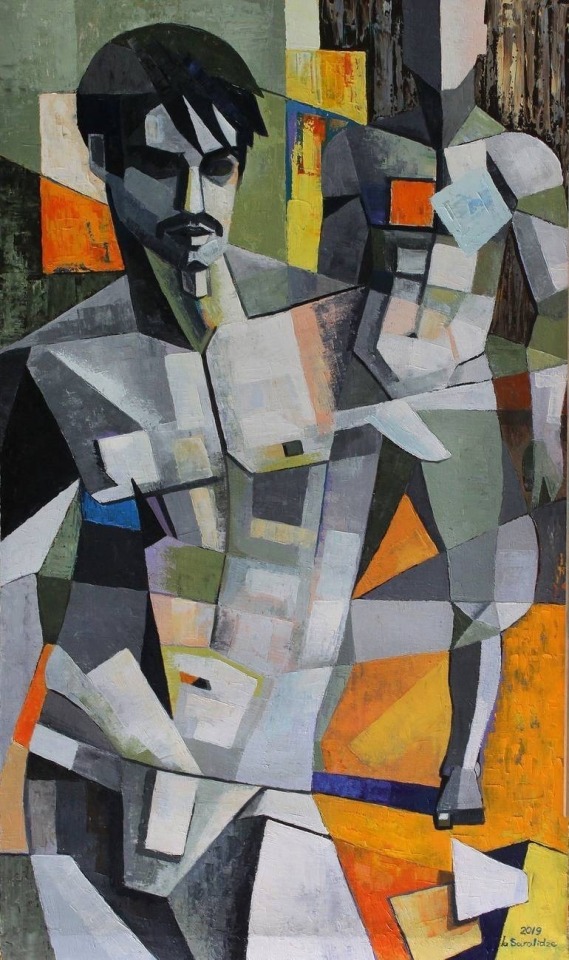
La Saralidze, 2019.
Rustavi, Azia, Georgia.
284 notes
·
View notes
Text
Daigvianes. (Kartalino-Kakhetian Georgian traditional folk song) (ჰამლეტ გონაშვილი. Hamlet Gonashvili accompanied by members of the Rustavi choir)
დაიგვიანეს, ჯერ არსად სჩანან! / მაგრამ სალამურს თუ მოჰკრეს ყური, / ანდამატურის ძალით გამოსწევს / აქეთკენ მის გულს ხმა უცნაური. // ვინ ქვაბულიძე და ვინ მეცხვარე?! / იქ, ბარში, ყველა ჩემი ტოლები / მტრებში ვეფხვივით დანავარდობენ / და მე კი ცხვარში აქ ვიმალები!. // მერე როგორ დროს? მაშინ, როდესაც / სხვა უდიდესი წინ გვიძევს ვალი! / მაგრამ ეს მოხდა ჩემს უნებურად, / გულთამხილავო, და არ მაქვს ბრალი!. // კიდევ არ სჩანან... ეგებ წავიდენ, / გ��იარეს და ვერ მოვკარ თვალი? / აჰ, ღმერთო ჩემო! ჯერ უმისოდაც / დაბნეული მაქვს მე გზა და კვალი! // [Akaki Tsereteli]
(Daigvianes, jer arsad schanan! / Magram salamurs tu mohkʼres qʼuri, / Andamatʼuris dzalit gamostsʼevs / Aketkʼen mis guls khma utsnauri. // Vin kvabulidze da vin metskhvare?! / Ik, barshi, qʼvela chemi tʼolebi / Mtʼrebshi vepkhvivit danavardoben / Da me kʼi tskhvarshi ak vimalebi!.. // Mere rogor dros? Mashin, rodesats / Skhva udidesi tsʼin gvidzevs vali! / Magram es mokhda chems uneburad, / Gultamkhilavo, da ar makvs brali!.. // Kʼidev ar schanan... Egeb tsʼaviden, / Gaiares da ver movkʼar tvali? / Ah, ghmerto chemo! jer umisodats / Dabneuli makvs me gza da kʼvali!)
_ Hamlet. Hamlet Gonashvili (1995, JARO – 4191-2)
87 notes
·
View notes
Text

Bus stop in the industrial city of Rustavi, Georgia
4 notes
·
View notes
Text

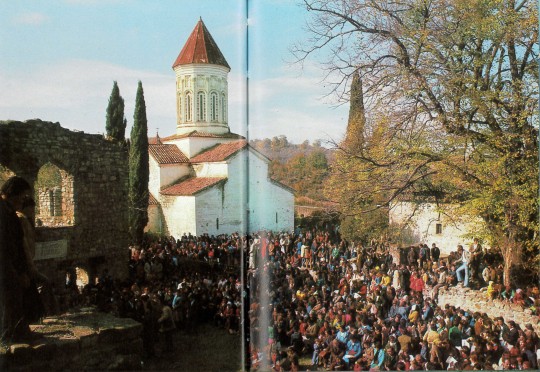
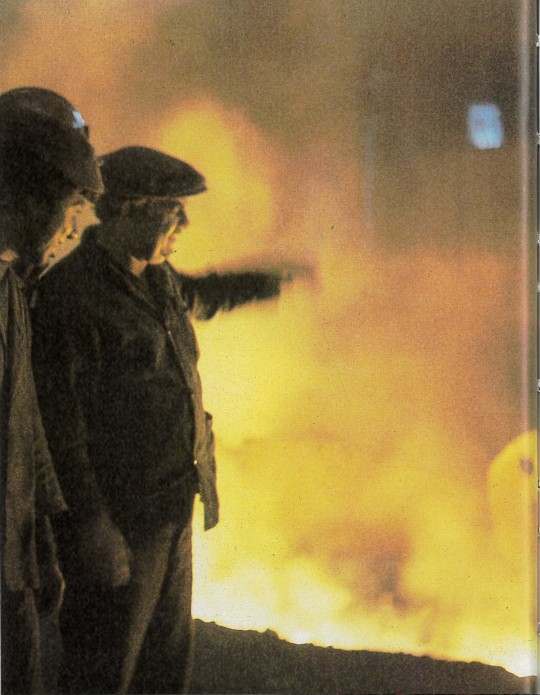
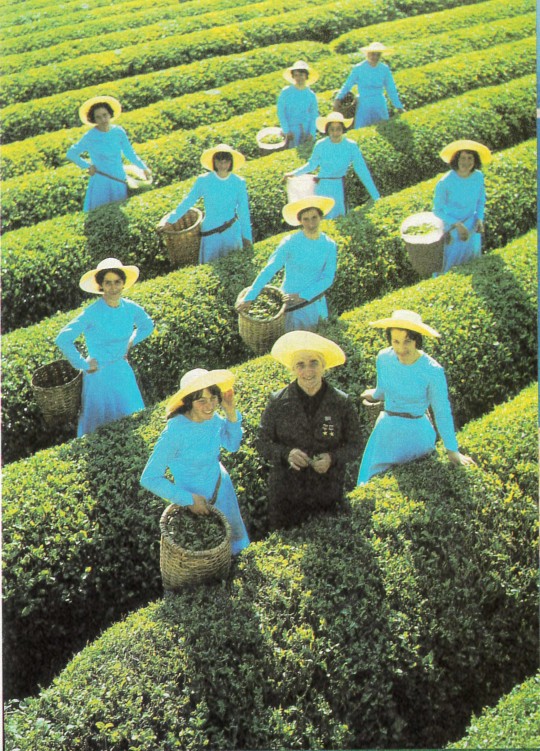


Photos of Soviet Georgia from the Soviet Ukrainian photo book "Song of Our Native Land" a book dedicated to the 60-year anniversary of the USSR. 1982
"Tbilisi, the capital city of the Georgian SSR"
"Celebrations in honour of the great Georgian poet Shota Rustaveli (Shotaoba)"
"Metallurgists from Rustavi"
"A tea-plantation"
"Pitsunda health-resort complex"
"Harvest festival"
#communism#history#socialism#leftism#marxism#marxism leninism#asia#ussr#caucasus#georgia#ussr history#soviet union#europe
18 notes
·
View notes
Text
Kuun'Doran: A Land Secluded
Deep within Evik's mountain ranges, where almost none have dared venture, there lies a land of cultures split off from all others, known only in legends as Bevri Sakhli, Many Home in their native language
The Peoples
Unlike what most think of Bevri Sakhli from the legends and Skylie Hearthflame's own accounts, Bevri Sakhli is noticeably larger than thought, and several cultures live within Bevri Sakhli's deep mountain valleys:
Bevri Sakhli
The true Bevri Sakhli are natives to the south-central region of the region, which everyone in the territory knows as Kuun'Doran
Their government is heavily centered around the faith of the Dedopali, with the Shamani being her intermediary for the people of Bevri Sakhli, with each of the 6 other main cities of Bevri Sakhli ruling under the Shamani.
Each city has their rulership inherited by the most capable child of the late ruler, while the Shamani is selected from the most pious young woman in the region, focused on those within their species' equivalent of a 14 to 24 year old human.
This search is supposed to happen once the former Shamani dies, but it is an open secret that if the Shamani is clearly ailing, the search for the next Shamani will begin early, with the selected young woman moving to the capital of Maradiuli Inti Pho Brang to live with additional education to replace the Shamani when she finally passes.
The other cities of Potala, Kuzkan, Tblumi, Kathmacha Rustavi, Zugdidpur and Limandu are specialized towards specific industries while Maradiuli Inti Pho Brang is much more mixed:
Potala: Printing, religious matters and bureaucracy
Kuzkan: Animal-related agriculture, along with relations to the Kumiri tribes neighboring Bevri Sakhli and trade
Tblumi: Mining and heavier industry
Kathmacha Rustavi: Plant agriculture dominates here, due to terrace farming innovations by the locals boosted by the Doran River flowing through the city.
Zugdidpur: Highly focused on commerce due to a strategic location along Bevri Sakhli's only major coastline on the Qaranaraq Sea and proximity to Kumiri tribes only rivaled by Kuzkan
Limandu: Art and architecture, as well as tourism for the city's food scene and architecture, with its main temple lauded as the pinnacle of Dedopalicianism before the new Grand Temple was designed and completed in the year 6003
Bevri Sakhli is highly diverse in population, although humans, as numerous and adaptive as they are, are numerous enough to overcome other species overall. Maradiuli Inti Pho Brang is the exemplar of this, being highly diverse in population, while most of the other major cities are predominantly one species class or another:
Potala: Goblins and cecaelia are common here due to their memories serving well for bureaucracy
Kuzkan: Gaians make up the overwhelming majority of the people here, with centaurs and minotaurs being overwhelmingly dominant, with most of the gaian Shamani in Bevri Sakhli's history coming from Kuzkan
Tblumi: Commoners are common here due to the high iron levels and generally hostile architecture for gaians, with dworfs and ogres being the dominant species
Kathmacha: Gaians also dominate Kathmacha, although this is shared with a large fae minority, with satyrs, elves and fauns making up large parts of the population
Zugdidpur: The city most populated by humans, many cecaelia and sirene also live here, with almost all cecaelia native to Bevri Sakhli hatching near the ports in the Qaranaraq
Limandu: Fae are dominant here, although a large satyr population exists as well
The Kumiri Tribes
To the west and north of Bevri Sakhli, in the dead center of Kuun'Doran, lie the Kumiri Tribes, who are a highly disjointed and generally tribal people well known for raiding into the various peoples of Kuun'Doran.
The Kumiri tribes claim all of the northeastern territory of Kuun'Doran, with a variety of both settled and nomadic peoples. For the most part, the western regions closest to Bevri Sakhli are mor settled due to the less fertile deserts and thus focused along the Doran River and the Qaranaraq Sea, often raiding or trading with their Bevri Sakhli, with a mixed population, with all three older classes of species having equal representation, although this is spread over many sovereign tribes, many of which are almost entirely one species or another
The eastern regions farther from Bevri Sakhli, meanwhile, are almost entirely nomadic along the northeastern steppe and drylands, with potential millions of satyrs and centaurs living amongst mixed human and elven tribes riding on horseback, with relatively few members of other species, and no Aquarians to speak of.
The Kumiri tribes are well known as terrifying raiders and excellent warriors, especially for the people of Bevri Sakhli, who have made many alliances with individual tribes, including many nomadic tribes, for both trade and military assistance.
Kumiri use tattoos to denote many achievements in life, including coming of age and marriage, as well as a dot under each of their eye and cycling around their eyes for each battle victory they've been in, and the Kumiri word for death, Gavlyn, for every life they've taken tattooed onto their arms, ignoring their shoulders.
These tattoos are typically covered in battle by armor or sleeves along their arms and a mask that covers the area around their eyes, to mask how powerful they truly are to others.
Kumiri tribes that have fae or gaian populations frequently use magic in combat, seeing it as a weapon just like any other, one that can be used against them, thus requiring they use it as well. This has thus led to nomadic Kumiri being highly mixed tribes, with most non-centaur or satyr tribes being either mostly elven with a major human minority, or mostly human with a large elven minority
These mixed tribes have a belief that fae and commoners were created by Gaia to complement each other: Commoners are unable to use magic but are not as hindered by iron, while fae, critically weak to iron, are able to use magic, meaning a group of both classes is naturally stronger than ones that are more homogenous.
All Kumiri tribes have a fairly democratic government within their tribes: Major matters are to be voted by every adult member of the tribe, and all leaders are voted amongst eligible adults.
Decisions involving warfare or raiding are usually unanimous, however, since most Kumiri tribes exhort a warlike culture, wanting to fight for personal honor and for the honor of their tribe, meaning most adults are willing to vote for combat matters. The Kumiri also have a belief that only those who vote for violence are to participate in it: Any Kumiri who does not vote to raid or do battle is not forced to fight, although they may be teased for cowardice.
When raiding, most Kumiri focus on looting, although resistance is ferociously crushed, with several warriors attempting to kill the target, either by magic, melee or ranged weaponry.
Muk'Tara
Muk'tara is a large nation bordering Bevri Sakhli's southeast, along the Qaranaraq Sea. It was founded by migratory elves from Zareen migrated to Kuun'Doran and settled in areas generally untouched by the Kumiri due to superstitions about the area being haunted.
These elves are genetically modified and changed by the Zareenites, making them resistant to fire and chemical burns, albeit at the cost of their ability to speak with animals.
They were highly isolationist for two generations, preferring to consolidate with minimal diplomacy, which wasn't aided by their first encounters with natives being Kumiri raiders.
Once they came out of general isolation, they quickly began to follow Dedopalicianism, viewing the Dedopali as someone who favored all peoples as equals, including them. While they rarely intermarried with outsiders, they have still become well associated with Kuun'Doran politics and have all but forgotten their true heritage: As a sibling ethnicity of the Damijani, with even their historical memory of the Zareenites being reduced over millennia to merely greedy monsters who changed them forcibly and enslaved them for their own material gains. Even today, Muk'tara is almost entirely comprised of red elves and other red fae, other forms of fae similarly treated to resist iron and fire.
Much Muk'taran culture is highly ascetic, favoring people who are not materialistic, especially those who devote their time to higher learning and the sciences. The leader of the Muk'tara is selected based on a rigorous testing regime any parent can enroll their child in, although these tests only take place at age 20 for most species of fae (35 for gnomes and 40 for cecaelia). Upon being voted in, the new leader rules for life, with a legion of advisors to rely upon for aid and advice to help lead the Muk'tara.
As of the current election, only elves have been voted, although recent elections have seen many goblins and sirene make it close to the final voting bloc, and many people both within the government of Muk'tara and many outside of the government's bureaucratic domain are predicting a shift from the long-standing elven rule for a different species, although most predict this is not guaranteed until non-elves regularly break into the final voting bloc, and even then most predict non-elf leaders will be unusual.
Kalandarai
Kalandarai is the third large nation of Kuun'Doran, and, similarly to how Bevri Sakhli is predominantly commoners and Muk'tara is mostly fae, Kalandarai is mostly gaians, particularly gorgons and fauns. The nation is highly focused on agriculture, with much of Kuun'Doran's food coming from Kalandarai or Bevri Sakhli's agricultural cities.
Kalandarai is noticeably warmer than Bevri Sakhli and Muk'tara, leading to most gorgons in Kuun'Doran being Kalandaraian. Satyrs are also fairly common, especially in the border regions between Bevri Sakhli and Kalandarai, as many satyrs prefer to rest away from the villages of Bevri Sakhli, whose fervent morning hymns rattle their ears a little too much for their tastes.
Kalandarai is, overall, fairly traditional and prefer to keep to themselves, although nomadic satyrs are welcome to travel through with minimal repercussions if they like, at the knowledge they are not allowed to obtain healthcare in Kalandarai if they are nomadic.
Nomadic Satyrs
City life is rarely great for satyrs: The noise, crowds and sheer sensory overload, often a delight for other species, are utterly disorienting for satyrs, whose senses are higher than other species' are. As such, most satyrs beyond Kuun'Doran are seen as violent and drug-addled, when in fact these are natural responses to nigh-endless sensory overload when there are few options for them to survive without cities or being viewed as petty thieves.
In Kuun'Doran, however, most people acknowledge satyrs have higher sensitivities and often allow satyrs to live in unsettled lands, Bevri Sakhli and Muk'tara explicitly leaving areas undeveloped to allow satyrs to avoid cities and their sensory overloads.
Many satyrs do make contact with settled folks, usually to trade their own crafted goods for resources from the cities. Nomadic satyr-made wine, often called Goat's Mead, is a highly sought-after and valued luxury item in most settlements across Kuun'Doran.
These nomadic satyrs are primarily lone males or small groups of females with any children they have.
Dedopalicianism
The dominant faith of the Doran peoples (Bevri Sakhli, Kalandarai, Muk'tara and the Kumiri), is Dedopalicianism, the belief that the Dedopali, a divine, sacrificed herself to free her people from oppression.
The faith is led by the Shamani of Bevri Sakhli, who serves as the intermediary of the Dedopali's last will and the faithful. This naturally leads to the Kumiri being hesitant to raid Bevri Sakhli, feeling they'll attract the Dedopali's anger upon them. This does not extend to the other Doran nations, however, and they raid them whenever they wish. The moment Bevri Sakhli is attacked, however, nearly all Kumiri drop all pretenses of being neutral towards Bevri Sakhli and assault its enemies.
Muk'tarans tend to be more devout than Kalandaraians, seeing the faith as a way to heal from the trauma the Zareen Empire forced onto them.
The Shamani demands no taxes beyond what is due for Bevri Sakhlian citizens' taxes, as she does not lead for the Dedopali, merely standing in while the Dedopali is gone.
A prophecy stands within Dedopalicianism that the Dedopali Mepe will return upon a white bird of prey or raptor bearing a golden sword, and to prove her standing she will slay a mighty beast even ogres shake in the fear of.
The Free Peoples of Kuun
The people who live along the western Kuun watershed, unlike the peoples of the larger kingdoms and the Kumiri, are not united by religion, and in fact often war against each other and the larger kingdoms, which require the larger, more peaceful kingdoms to deal with them. From Muk'tara's defensive state, focusing on shoring up its cities' defenses at the cost of a fairly small standing army, to Kalandarai's harsh border patrols featuring large walls, to Bevri Sakhli simply delegating Kuun incursions to be dealt with by their Kumiri allies with small yet highly-professional military corps kept for self defense, the Kuun incursions rarely succeed beyond raiding smaller settlements before they get crushed by forces far more powerful than they or simply hit a defense too mighty for them to besiege.
The people of the Kuun are also prone to using mercenaries from the Doran nations for their infighting, which is seen as a cowardly move, but is one often taken, allowing for Kumiri warriors and Bevri Sakhli mercenaries to grow fat off of the near endless Kuun wars
The culture of the Kuun is all unified from a former great empire - One that shattered when its rulers could not repel a unified Kumiri and proto-Bevri Sakhli and Kalandaraian force. With their cultures still very much the same, they all view the Doran peoples - Including Muk'tara, who migrated in 500 years after the Kuun Empire collapsed - As invaders attempting to erase all Kuun from the world. Their false religion involving a Dedopali is further proof of that.
The others, meanwhile, see the Kuun in various ways: Muk'tarans feel attacked for no reason beyond being nearby despite no hostilities, while Kalandaraians have legends about the mostly commoner Kuun being oppressive towards gaians and thus feel animosity.
Bevri Sakhlians, meanwhile, have a more pragmatic approach: While they are somewhat at fault for the Kuun's hatred of them, they do appreciate the fact that Kuun still purchase their mercenaries' services and allow them their agreed-upon share of plunder.
The Kumiri, meanwhile, simply enjoy the constant wars and the demand for fine soldiers as a way to show their prowess and bring honor to their tribes with not only booty but cleaner payouts as more tangible rewards for fighting well.
Bevri Sakhli soldiers are renowned in all peoples, even the Kuun, for being amazing, if prohibitively expensive, mercenaries. Most Kuun fiefdoms cannot afford to pay for Sakhlian mercenaries without allowing them to take most if not all of the plunder from battle.
Kumiri soldiers are similarly prized for their ferocity, but are usually much lighter armored and usually cheaper, as they simply request fights, plunder and a little bit of pay up front in case the plunder is insufficient. Most Kuun fiefdoms hiring Kumiri try to pay anyway they can, but those who refuse the Kumiri their pay quickly find out hiring Kumiri does not make them loyal, as the Kumiri swiftly raid their fiefs or turn on them for more pay.
The faiths of the Kuun are many, and are descendants of the original Kuun faith. These faiths are usually minimal in difference, but are enough for neighboring fiefdoms to wage war against each other, and are usually endemic to a single fiefdom.
On occasion, a particularly clever, charismatic, or just cutthroat lord will unite many Kuun holdings and declare a holy crusade against the Doran heathens... Which usually results in the Doran peoples repelling them, often killing or capturing the lord in question and shattering his realm.
Ultimately, the Kuun are a quarrelsome, warmongering lot, and the Doran peoples of Bevri Sakhli, Muk'tara and Kalandarai prefer to pretend they're not there, all the while Sakhlian mercenaries bring much wealth to Bevri Sakhli via their assistance in wars.
The Kumiri just like the fact it's essentially being paid to raid someone, and they love that type of shit, even more than they like just raiding random villages.
Change in The Air
An influx of siege dragons in Kuun'Doran has already laid waste to several Kumiri tribes and Kuun fiefdoms, although they have ultimately dealt minimal damage to larger cities like Bevri Sakhli's core cities. Muk'tara meteorologists have charted the siege dragons to increased strength in wind streams flowing into Kuun'Doran and from Zareen. These winds have led to increased, massive windstorms in the western regions of Kuun'Doran, damaging some villages in Kalandarai and the Kuun.
Many particularly devout Dedopalicians view the windstorms as potentially bringing the Dedopali back, even if the common, romanticized view of her effortlessly bringing her mount down to a graceful landing may be more of a hard crashlanding, while more pragmatic people acknowledge this may not actually happen.
After all, it's been nearly 2 millennia, and the Dedopali has not returned. Yet even the most cynical Dedopalicians can't help but feel a... Shift in the winds, that could mean big things for Kuun'Doran, whether good or ill.
First thing to do is figure out how the hell to get rid of all these gotdamn dragons
5 notes
·
View notes
Text
youtube
"The Knife for Your Throat" (Magic Spell for B.I.'s Death) is an experimental, improvisational composition based on the sounds of the Tbilisi autumn-winter protests of 2024. On October 28, protests began across Georgia after the parliamentary elections, which exposed the dictatorial regime of the current authorities. A series of rallies that continue to this day have gathered several hundred thousand participants who joined in fierce resistance to local power structures. The global crisis of power, the legal system, and the abolition of the constitution have turned the streets of Georgia's largest cities (Batumi, Zugdidi, Kutaisi, Tbilisi, Gori, Rustavi, etc.) into a battlefield where not only physical and ideological struggle takes place, but also performative and actionist acts that have turned Georgia into a polyamorphic arena of confrontation. The sound picture that opens up in this confrontation is particularly vivid and creative, where the national musical character is clearly audible, bringing traditional musical constructs into the urban environment, which are being processed in conditions of resistance into random musical-noise clusters. The sound of horns, whistles, rhythmic patterns beaten on metal shields, and rhythmic, repetitive exclamations take on the outlines of a ritual procession in this space, which we tried to capture and combine into a single hymn. Field recording - Nino Jvania
Vocals, tuba, horn, kazoo - Darja Kazimira
Drums, trumpet, percussions - Zura Makharadze
Visual Art - Darja-Kazimira Zimina
And we would like to express special gratitude to Nino Jvania for the provided recordings of Tbilisi rallies.
#darja kazimira#experimental music#ritual music#zura makharadze#artbrut#outsiderart#ritual art#Youtube
2 notes
·
View notes
Text
Saints&Reading: Wednesday, June 19, 2024
june 6_june 19
VENERABLE DODO OF THE ST. DAVID-GAREJI MONASTERY, GEORGIA (596)

A companion of St. Davit of Gareji, St. Dodo belonged to the royal family Andronikashvili. He was tonsured a monk while still an youth, and was endowed with every virtue. An admirer of poverty and solitude, he labored as a hermit at Ninotsminda in Kakheti. Having heard about the miracles of Davit of Gareji, St. Dodo set off for the Gareji Wilderness to witness them himself. The venerable fathers greeted one another warmly and began laboring there together. After some time, St. Davit became deeply impressed with Dodo’s devotion to the Faith, and he proposed that he take with him some of the other monks and begin to construct cells on the opposite mountain.
The brothers built cells and began to labor there with great ardor. Before long the number of cells had reached two hundred. St. Dodo isolated himself in a narrow crevice, where there was barely room for one man. Day and night, winter and summer, in the heat and the cold, he prayed with penitent tears for the forgiveness of his sins, the strengthening of the souls of his brothers, and the bolstering of the true Faith throughout the country. Once St. Davit miraculously healed the son of Prince Bubakar of Rustavi. In return, the grateful prince donated food and other necessities to the monks of Gareji Monastery. St. Davit took part of his contributions and sent what remained to St. Dodo. He advised Bubakar to have St. Dodo baptize him, and St. Dodo joyously baptized Bubakar, his sons, and all his suite. St. Dodo labored to an advanced age in the monastery he had founded and reposed peacefully. His spiritual sons and companions buried him in the cave where he had labored, and a church was later built over his grave.
© 2006 St. Herman of Alaska Brotherhood.
SAINT BESSARION THE WONDERWORKER OF EGYPT (466)

Saint Bessarion, Wonderworker of Egypt was an Egyptian. He was baptized while still in his youth, and he led a strict life, striving to preserve the grace given him during Baptism. Seeking to become more closely acquainted with the monastic life, he journeyed to the holy places. He was in Jerusalem, he visited Saint Gerasimus (March 4) in the Jordanian wilderness, he viewed other desert monasteries, and assimilated all the rules of monastic life.
Upon his return, he received monastic tonsure and became a disciple of Saint Isidore of Pelusium (February 4). Saint Bessarion took a vow of silence, and partook of food only once a week. Sometimes he remained without food or drink for forty days. Once, the saint stood motionless for forty days and forty nights without food or sleep, immersed in prayer.
Saint Bessarion received from God the gift of wonderworking. When his disciple was very thirsty, he sweetened bitter water. By his prayer the Lord sent rain upon the earth, and he could cross a river as if on dry land. With a single word he cast out devils, but he did this privately to avoid glory.
His humility was so great that once, when a priest ordered someone from the skete to leave church for having fallen into sin, Bessarion also went with him saying, “I am a sinner, too.” Saint Bessarion slept only while standing or sitting. A large portion of his life was spent under the open sky in prayerful solitude. He peacefully departed to the Lord in his old age.
Source: Orthodox Church in America


ACTS 23:1-11
1 Then Paul, looking earnestly at the council, said, "Men and brethren, I have lived in all good conscience before God until this day." 2 And the high priest Ananias commanded those who stood by him to strike him on the mouth. 3 Then Paul said to him, "God will strike you, you whitewashed wall! For you sit to judge me according to the law, and do you command me to be struck contrary to the law?" 4 And those who stood by said, "Do you revile God's high priest?" 5 Then Paul said, "I did not know, brethren, that he was the high priest; for it is written, 'You shall not speak evil of a ruler of your people.' " 6 But when Paul perceived that one part were Sadducees and the other Pharisees, he cried out in the council, "Men and brethren, I am a Pharisee, the son of a Pharisee; concerning the hope and resurrection of the dead I am being judged!" 7 And when he had said this, a dissension arose between the Pharisees and the Sadducees; and the assembly was divided. 8 For Sadducees say that there is no resurrection-and no angel or spirit; but the Pharisees confess both. 9 Then there arose a loud outcry. And the scribes of the Pharisees' party arose and protested, saying, "We find no evil in this man; but if a spirit or an angel has spoken to him, let us not fight against God." 10 Now when there arose a great dissension, the commander, fearing lest Paul might be pulled to pieces by them, commanded the soldiers to go down and take him by force from among them, and bring him into the barracks. 11 But the following night the Lord stood by him and said, "Be of good cheer, Paul; for as you have testified for Me in Jerusalem, so you must also bear witness at Rome."
JOHN 16:15-23
15 All things that the Father has are Mine. Therefore I said that He will take of Mine and declare it to you. 16 A little while, and you will not see Me; and again a little while, and you will see Me, because I go to the Father. 17 Then some of His disciples said among themselves, "What is this that He says to us, 'A little while, and you will not see Me; and again a little while, and you will see Me'; and, 'because I go to the Father'?" 18 They said therefore, "What is this that He says, 'A little while'? We do not know what He is saying." 19 Now Jesus knew that they desired to ask Him, and He said to them, "Are you inquiring among yourselves about what I said, 'A little while, and you will not see Me; and again a little while, and you will see Me'? 20 Most assuredly, I say to you that you will weep and lament, but the world will rejoice; and you will be sorrowful, but your sorrow will be turned into joy. 21 A woman, when she is in labor, has sorrow because her hour has come; but as soon as she has given birth to the child, she no longer remembers the anguish, for joy that a human being has been born into the world. 22 Therefore you now have sorrow; but I will see you again and your heart will rejoice, and your joy no one will take from you. 23 And in that day you will ask Me nothing. Most assuredly, I say to you, whatever you ask the Father in My name He will give you.
#orthodoxy#orthodoxchristianity#easternorthodoxchurch#originofchristianity#spirituality#holyscriptures#gospel#bible#wisdom#faith#saints
3 notes
·
View notes
Text

Welcome to 1989 (Nonesuch's Version), a new playlist of works from Nonesuch Records' 1989 releases by John Adams, Edward Aldwell, Jan DeGaetani, Bill Frisell, Gipsy Kings, Philip Glass, Richard Goode, Wayne Horvitz, Kronos Quartet, Pat Metheny, Steve Reich, Rustavi Choir, Dawn Upshaw, Word of Mouth Chorus, World Saxophone Quartet, and more! You can hear it on Spotify and Apple Music here.
#1989 taylor's version#1989#john adams#bill frisell#gipsy kings#philip glass#richard goode#kronos quartet#pat metheny#steve reich#dawn upshaw#nonesuch#nonesuch records
2 notes
·
View notes
Text


✨️The walls of a medieval fortress. According to the masonry, you can see how the destroyed parts were built over in different centuries (from the 5th to the 13th centuries).
✨️Стены средневековой крепости. По кладке можно заметить, как разрушенные части в разные века надстраивали (с V по XIII века).
Rustavi Fortress, Rustavi, Georgia
#noseysilverfox#photography#fortresses#architecture#ancient buildings#historic buildings#buildings#spring#sakartvelo#georgia#photography on tumblr#original photography#photographers on tumblr#medieval period#middle ages#antiquity#blue sky#historical places#interesting places#love life#tourism#фотоблог#весна#архитектура#интересные места#история#исторические постройки#атмосферно#путешествие#турумбочка
132 notes
·
View notes
Text
Heute war ein mega schöner, aber auch mega anstrengender Tag. Das liegt unter anderem daran, dass ich die Wege echt unterschätzt habe... Wo in Südafrika 300-400 km kein Problem wären, sind die heutigen 330 km in den Knochen zu spüren. Teilweise sehr anspruchsvolle Trails, die teilweise ausgewaschen, steil, schmal oder manchmal auch überhaupt nicht zu sehen sich durch die Landschaft schlängeln. Heißt ab jetzt weniger km pro Tag.
Ansonsten bin ich nach kleiner Planänderung heute von Marneuli nach Rustavi um dann mehr oder weniger parallel mit der Grenze zu Aserbaidschan nach Dedoplistkaro zu kommen. War nicht der Plan aber ca. 60 km vor der Stadt wurde mir von freundlichen Grenzsoldaten klar gemacht, dass ich hier ohne Genehmigung eigentlich nix verloren habe. Aber ich durfte dann doch weiter und eben nach Dedoplistkaro fahren. Ansonsten habe ich die Regenbogen-Berge gesehen, war bei mehreren Klöstern, hab viele Steinhöhlen gesehen und einen Matsch Vulkan.
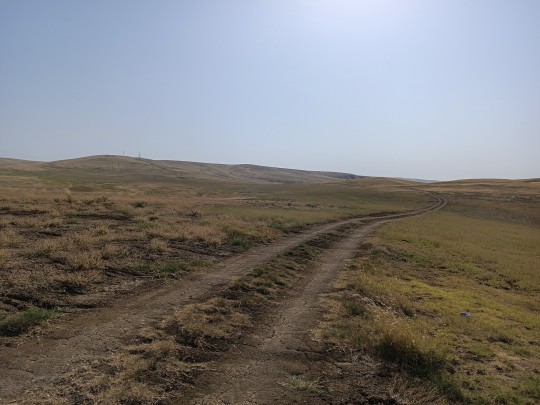


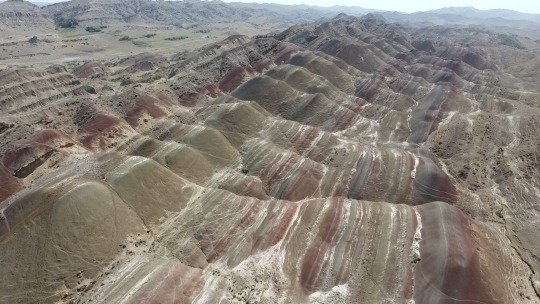

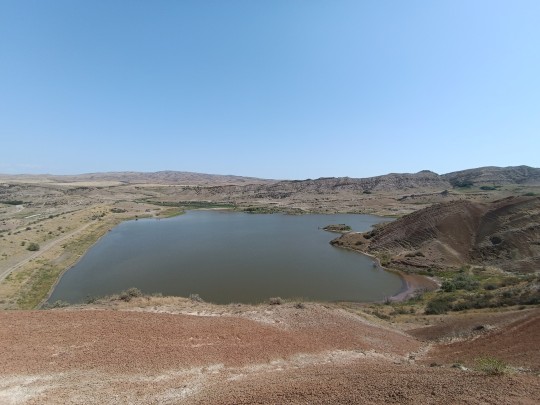
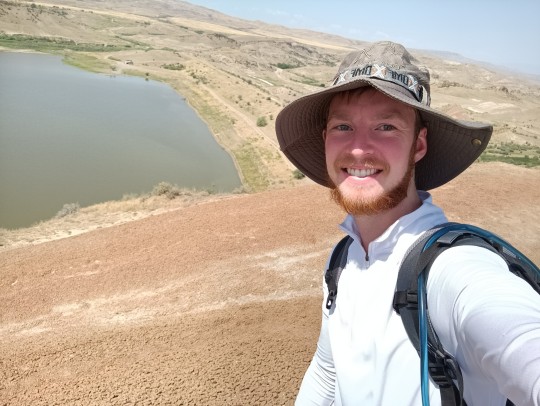
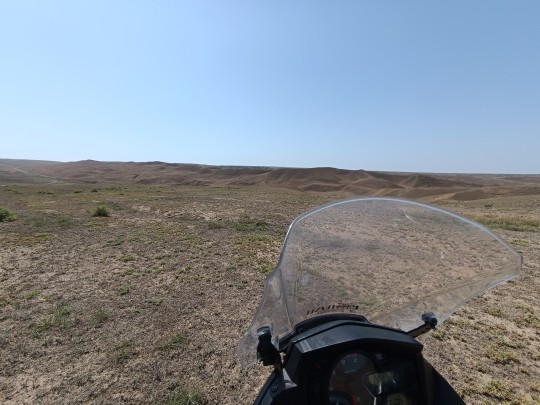


4 notes
·
View notes
Text
Gaprindi Shavo Mertskhalo (Kartalino-Kakhetian lyric song)
(ჰამლეტ გონაშვილი. Hamlet Gonashvili accompanied by members of the Rustavi choir)
გაფრინდი შავო მერცხალო / გაჰყევ ალაზნის პირსაო, / ამბავი ჩამომიტანე / ომში წასული ძმისაო. // ალაზნის პირას მოსულა / წითელი სატაცურიო, / მიველ და კრეფა დავუწყე / მეგონა უკაცურიო.
(Gaprindi shavo mertskhalo / gahqev alaznis p'irsao, / ambavi chamomit'ane / omshi ts'asuli dzmisao. // Alaznis p'iras mosula / ts'iteli sat'atsurio, / mivel da k'repa davuts'qe / megona uk'atsurio.)
_ Hamlet. Hamlet Gonashvili (1995, JARO – 4191-2)
13 notes
·
View notes
Text
Are you a student in Georgia? Here's a special offer for you!

Clarification of the Cost Structure:
Basic costs for the license in Georgia are not as high as in many European countries, which is great!
Compared to Germany/Norway/Netherlands and some other similar countries where a license can cost over 3000€ and take over 6 months it's very compelling.
As a Student who doesnt speak russian or georgian, you will be paying around 216 GEL for all the needed exams and document fees.
Basic costs involved:
Theory and the 1st practical exam: 56 GEL Retaking theory exam: 40 GEL Retaking 1st Practical exam: 30 GEL Medical Certificate: 30 GEL Passport translation (if you dont have Georgian residence permit): 40 GEL
City exam (car only):
Not Urgent (wait 2 weeks) - 90 GEL
216 GEL if you do everything slowly.
Urgent (same day) City Exam would be - 255 GEL
One Autodrom (1st Practical preparation) class with an English speaking instructor: 40 GEL One City Class to learn how to drive in Tbilisi: 50 GEL
Preparation for the City exam (optional but very recommended) in Rustavi:
320 GEL to see all the exam routes;
As instructors only speak Russian and Georgian (and some Turkish) you'd need a translator whom we can provide. If you want, you can take someone with you who can translate.
Translator costs: 30 GEL per hour. You go to Rustavi together by taxi, paid by you. Taxi is usually around 25 GEL one way. We can try to arrange classes when our translator is already in Rustavi so that you have less expenses for the taxi.
When the translator is coming with you and going back to and from Rustavi, its the time they cant take any other work, so its covered as 15 GEL one way maximum.
Example: You pick up the translator to go to Rustavi, have 2 hours route driving and then come back alone because the translator stayed with another client.
You'd pay: 15 GEL (translator time to go to Rustavi with you) + 60 GEL (2 hours translation) + taxi fee.
320 GEL for all the 8 routes are paid to instructors and are paid at once, to enable the discount. Normally its 50 per route if you do it separately. But the routes can be split into 2 days. You can't split it in 4 or more days!
0 notes

